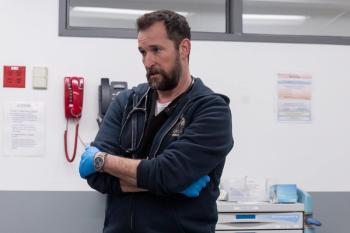
You'll figure it out: A nontraditional path to leadership in health care | Viewpoint
Before becoming chief nurse executive of the Duke University Health System, Theresa McDonnell ran a bakery and cared for loved ones with serious health conditions. She says it’s important to recognize lived experience.
I didn’t expect to work in health care. My career started in a flower shop.
My parents were entrepreneurs who imported orchids and ran a florist business. When they traveled, I was left to manage the store. I was seventeen. I didn’t think of it as leadership then, but looking back, that’s where it began: managing a team, solving problems in real-time, and learning to figure things out as I went.
Later, when my mother had a massive stroke and was discharged with an open amputation wound, we brought her home. There was no care team. I was the care team. I learned to pack her wound with one hand while holding my newborn with the other. Our townhouse living room became a makeshift rehab unit. I wasn’t a nurse yet, but I was already learning how to lead under pressure, in moments of uncertainty, with no manual and no margin for error.
That phrase, “you’ll figure it out”, was my father’s answer to just about everything. When he suggested opening a bakery in our small Massachusetts town, I told him we needed a pastry chef. “I’m looking at her,” he replied. So I taught myself from books. No YouTube. No training. Just trial, error, and late nights. The bakery didn’t last long, but it taught me how to adapt, how to multitask under pressure, and how to stay calm when things go sideways. Those lessons would serve me long after the oven cooled.
As we prepared to close the business, my career shifted again. I found myself helping at a local Montessori school, first with the books, then in the classroom. Teaching young children taught me the power of presence, patience, and personalized communication. These skills would later prove invaluable in leading clinical teams. Fostering independence, whether in a classroom or on a hospital floor, is what drives innovation and confidence.
Then, in 2000, my eight-year-old son fell critically ill. What started as a sore throat turned into a rare and nearly fatal complication that kept him hospitalized for 25 days. Multiple chest tubes. Two stints in the ICU. We asked questions. We read everything we could. We didn’t have clinical credentials, but we became part of the care team by necessity. One nurse finally asked, “Are you in healthcare?” I wasn’t. Not yet. But the seed had been planted long ago and was starting to grow.
After he recovered, and not long after my father passed away, I applied to a direct-entry nursing program. I hadn’t taken a science class in over a decade. No clinical background. No backup plan. But I knew I wanted to be where care was genuine and where people showed up when things fell apart.
That decision launched a new chapter: working night shifts through graduate school, becoming a nurse practitioner, caring for oncology patients, stepping into leadership, navigating a pandemic, and ultimately leading thousands of nurses. I’ve helped open major clinical facilities during public health crises and led teams through restructures and mergers, all while ensuring patient care and team morale remained stable. None of it followed a traditional trajectory. And that’s my whole point.
We often discuss leadership pipelines and talent development in healthcare. But not everyone arrives through the same hallway. Some of us come in through caregiving, crisis, failed businesses, and second chances. And those experiences? They’re assets. They teach you how to lead with empathy, how to stay steady in chaos, and how to build trust when certainty is in short supply.
Not every health system has access to cutting-edge analytics or massive capital investments. But every organization has people. And often, the strongest leaders are those who’ve had to improvise, adapt, and rebuild. We should build systems that elevate unconventional voices, reward lived experience alongside clinical expertise, and recognize that leadership isn’t always polished. It’s practiced in real time.
You don’t need a five-year plan to lead. You need a reason. A willingness to try. The resilience to keep going when things fall apart. And maybe most of all, the belief that when things don’t go as expected, you’ll figure it out.
Theresa McDonnell is the chief nurse executive and senior vice president of the Duke University Health System.





























































































